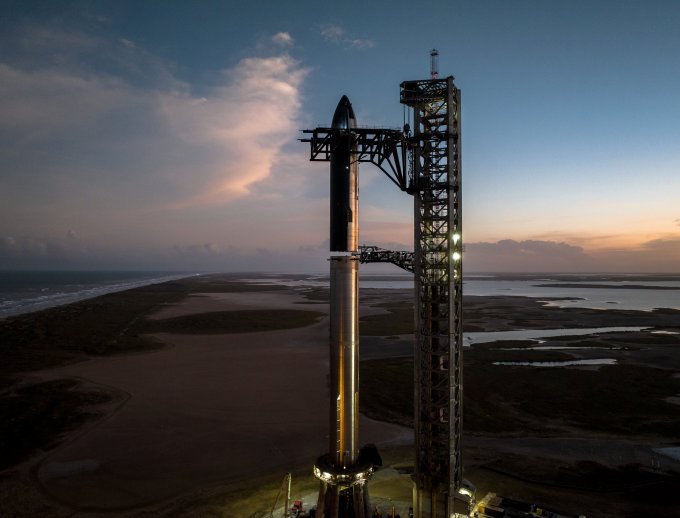ARTICLE AD
SpaceX has put on its most public and aggressive offensive against regulators to date, with a blog post published Tuesday urging more expeditious launch licensing — lest the country lose its place as the leader in the global space race.
Orbital launch is a tightly regulated industry governed chiefly by the Federal Aviation Administration, though to obtain a launch license from the FAA companies must also show they are in compliance with local and environmental law. Rockets that operate commercial services regularly, like SpaceX’s workhorse Falcon 9 rocket, do so under a blanket vehicle operator license.
Due to the iterative nature of the Starship heavy lift vehicle test program, which has included updates to hardware and new sets of test objectives with each mission, SpaceX must seek a modification to its vehicle operator license before each launch. These license modifications have taken months each to issue. But SpaceX has had the next test flight hardware ready much sooner, and has typically flown within days of receiving each license modification.
SpaceX is currently awaiting approval for its fifth test flight. The hardware has been ready to fly since the first week of August, but the company recently received a launch license date estimate of late November from the FAA, the blog post says. For the next test, SpaceX is preparing to conduct the most ambitious objective yet in its Starship test program: returning the Super Heavy booster to the launch site and catching it in mid-air.
As the company acknowledges, a booster catch would be “singularly novel” in the history of rocketry. The only analogue would be the routine Falcon 9 booster landings, but those boosters are significantly smaller than Falcon Heavy and require no infrastructure other than a safe landing zone, like a pad or a barge. In contrast, the company will try to catch Super Heavy using mechanical arms called “chopsticks” attached to Starship’s massive launch tower.
 Image Credits: SpaceX (opens in a new window)
Image Credits: SpaceX (opens in a new window)
“It’s understandable that such a unique operation would require additional time to analyze from a licensing perspective,” the company says in the blog post. “Unfortunately, instead of focusing resources on critical safety analysis and collaborating on rational safeguards to protect both the public and the environment, the licensing process has been repeatedly derailed by issues ranging from the frivolous to the patently absurd.”
Though the space company has already made its arguments before regulators through official filings, leadership there appears to think a more public airing of grievances is warranted.
This most recent delay in particular is not based on new safety concerns, SpaceX claims, but “superfluous environmental analysis” related to multiple aspects of the launches, like the sonic booms and water deluge system. For example, the FAA recently approved additional 60-day analyses over the sonic booms and the jettisoning of a piece of hardware called the hot-stage into the Gulf of Mexico during flight, two issues that the company says have been “exhaustively analyzed.”
These consultations “could indefinitely delay launch without addressing any plausible impact to the environment,” SpaceX says.
The company takes particular umbrage with recent reporting from CNBC on the Starship water deluge system at the Starbase launch facility near Boca Chica, Texas. The water deluge system is used to disperse the enormous amount of heat and sound generated during lift-off. According to CNBC, SpaceX recently received violation notices from the Texas Commission on Environmental Quality (TCEQ) for discharging industrial wastewater without a permit.
Immediately after the story was published in August, SpaceX hit back on X, saying that the system only uses potable water and that continued operation of the water deluge was explicitly allowed by regulators as the company works on its permit with TCEQ.
Although the company strenuously insists that it was working in good faith with regulators, the FAA nevertheless delayed public meetings related to a separate environmental review at Starbase just a day after the CNBC report was published. In a statement, the FAA said that it “was unable to confirm the accuracy of certain representations in SpaceX’s license application” after the agency “became aware of allegations that SpaceX violated the Clean Water Act at the Boca Chica Launch Site.”
But despite the “small, but vocal minority of detractors trying to game the regulatory system to obstruct and delay the development of Starship,” SpaceX says it will press on.

 2 months ago
24
2 months ago
24 

